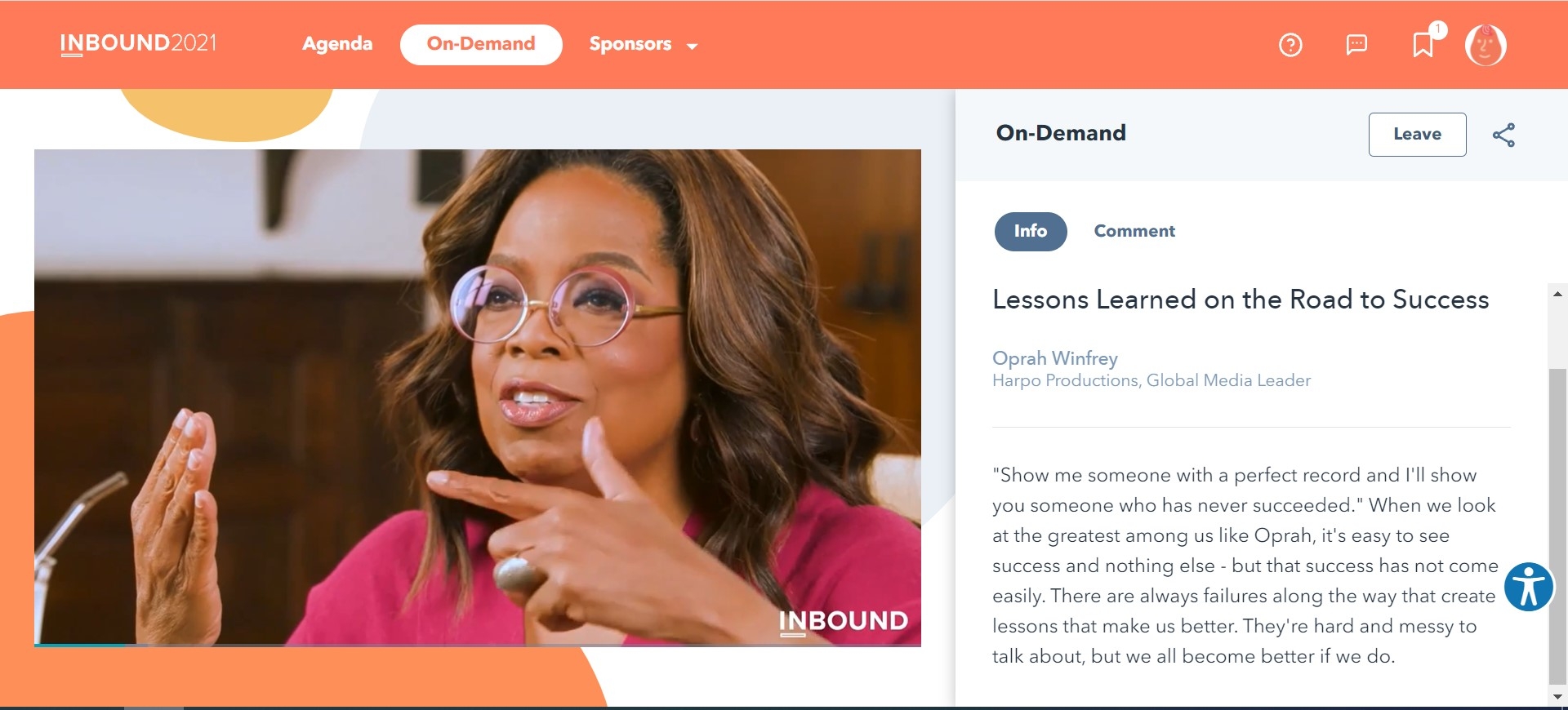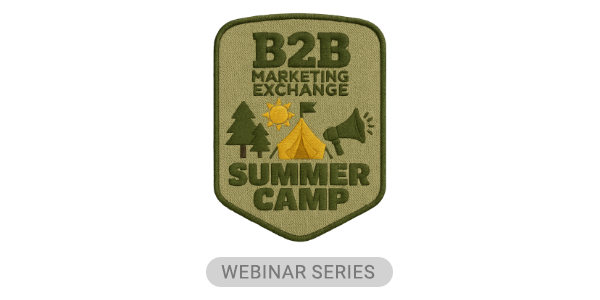The B2B industry has spent the past two years in a rapidly changing digital and societal workspace, and there’s no better time than the present to examine and analyze new approaches to content, cookies and diversity — in other words, the customer experience (CX). Thus was the focus of INBOUND 2021, an online event experience hosted by HubSpot, which brought the importance of inclusive CX to light while providing a roadmap for the changing industry — specifically the demise of third-party cookies.
The three-day event included various break-out sessions, case studies, Q&As and keynotes interspersed with low-pressure activities, such as book club meetings, a cooking class and a mental fitness break. Across all tracks, the sessions all seemed to boil down to the same three premises:
- The importance of diversity and inclusion;
- The need to refine marketing strategies in the face of industry-wide change; and
- How to build communities to inform content campaigns and build trust with clients and prospects.
Navigating The Cookie-Less Future
When Google fired the cookie-less shot heard around the world, marketing teams hit the drawing board and analyzed other data sources to identify new (slightly less intrusive) avenues of collecting customer information. While the original targeted phase-out timeline was the beginning of 2022, Google pushed its deadline to 2023, giving marketing teams the gift of more time to experiment with new data procurement processes.
In his session, “No More Cookie Cutter Marketing,” Stratagon’s Alex Moore emphasized that third-party cookies themselves aren’t being eliminated; the mainstream collection method is in favor of increased consumer privacy. To circumvent the new privacy restrictions, Moore provided attendees with three steps to get started: Go back to basics, optimize tech stacks and leverage ABM strategies.
“Digital marketing has created such a low barrier for entry that, quite honestly, a lot of marketers aren’t overly skilled at the fundamentals anymore,” Moore explained. “Removing cookies will force people to improve their skills. Specifically, personalized messaging and expertise on data analytics have to improve.”
To that end, Moore recommended practitioners:
- Know their audience and align messaging across departments, and then start a cycle of measuring, testing, adjusting and repeating;
- Create a better user experience through the reorganization of CRMs, activating data with inbound and outbound marketing and implementing a customer management system (CMS); and
- Utilize ABM strategies to promote internal alignment, account activation and leverage GEO fencing to place targeted advertisements.
Customer-Centricity, Content & You
A primary area of focus for the three-day event revolved around customer success and experience, with a focus on the role content plays in speaking to audiences and capturing their attention. However, the caveat to content is that marketers are playing in an oversaturated field. To differentiate themselves from the competition, various presenters spoke to the power of voice-based marketing — though interpretations were different.
While there was the obvious spoken word content (Spotify’s Dawn Ostroff pointed to audio in her session, while Vidyard’s Tyler Lessard mentioned video in his), SlapFive’s Jeff Ernst used the term to refer to the voice of the customers in his session, “Supercharge Your Inbound Marketing And Sales With Customer Voice Content.”
Ernst laid the groundwork with statistics, explaining that “98% of content is in the company’s voice, while 75% of customers want something in a customer voice.” Ernst said harnessing customers’ voice is a strategic initiative that relies on timing and approach. For example, he warned against soliciting testimonials, endorsements or recommendations in favor of giving customers an opportunity to share their knowledge, experience and advice to make them the “hero” of the story. Instead, he recommended asking for insights around milestone events, such as renewals (“what do you like about the product?”) and onboarding (“why did you select X company over the competition competitor?).
However, while customer sentiment will likely remain the same, their voice will likely be different — an issue that butts heads with the importance of establishing strong company branding. Throughout her session, Spotify’s Ostroff walked viewers through the ins and outs of branding in “The Benefits Of Curating Content To Your Audience.” In her eyes, the key to branding is a well-aligned, motivated team.
“If people are really excited about what they do, they’ll come into work every day and ask themselves, ‘What can I do to make the company better than when I started?’” explained Ostroff. “It doesn’t matter what you do; there’s always a way to get excitement and joy out of what you’re doing.”
Community’s Role In Building Company- & Customer-Wide Passion
What do customer-voice content and personalized messaging have in common? The strong influence community plays in their creation.
Though Ostroff’s words about building a strong company culture to promote branding are vital, the idea that every individual at a company — especially larger corporations — are completely gung-ho about their jobs is somewhat unrealistic. HubSpot’s Shana Sumers moved community into the spotlight as she informed INBOUND attendees about the power of a strong, inclusive and empowering community in “Community Building With Customers.”
Whether organizations are seeking to build an internal support system or a Peloton-type client community, the fundamentals are the same. Sumers stressed the importance of ensuring representation to create a diverse group and offer an inclusive space.
To properly build a community, Sumers explained that it can’t be an additional responsibility added on to an existing department; instead, it should be treated as a centralized department with a dedicated manager. When building a community, managers should ensure the space is welcoming and supportive, she continued. Components of successful communities include:
- Promoting diversity and ensuring each individual feels valued and included;
- Relevant, easily accessible resources that build trust;
- Consistent, inclusive communication; and
- Identifying specific topics members want to discuss.
“Companies are turning to community building to support success,” Sumers explained. “It’s a continuous investment. This isn’t just a trend; community-led companies are the future. Any company not involved will fall behind and struggle to catch up.”
Parting Words From The A-List
INBOUND’s line-up featured star-studded keynotes with some of Hollywood’s biggest names. While the sessions were more motivational than actionable, who doesn’t want to receive some words of wisdom from Oprah? Some of the golden nuggets include:
“Success is all in leadership — it’s leading by intent, insight, inclusion and inspiration. You have to be intentional about serving people and know your vision, mission and values. I’m focused on getting to know everyone, including them and setting the right tone by leading through example and inspiring my team to get outside of ourselves.” — Cynt Marshall, CEO of the Dallas Mavericks basketball team, “The Start Of Leaving A Legacy”
“Whatever you want to do, you have to bust your ass. Don’t believe the social media hype that it’s easy to achieve your dreams — you have to roll up your sleeves. You have to surround yourself with positivity. If you’re hanging with some mother f*ers who are negative, they have to go. They will drag you down and stop you from going where you want to go.” — Spike Lee, an American film director, producer, screenwriter, actor and professor, “Drawing Ambition Out Of Yourself & Others”
“When things aren’t going the way you want, you have to look to yourself first. Real growth shows up when you understand the clarity on the intention behind your mistakes. Every mistake is there to teach you something about yourself. Your life has a pattern, and it’s your job to understand how your life is speaking to you.” — Oprah Winfrey, a modern Renaissance woman, “Lessons Learned On The Road To Success”







